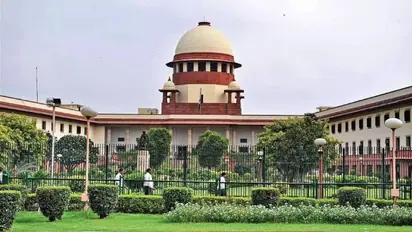Supreme Court refuses to stay Patna HC order striking down 65% reservation in Bihar

Synopsis
The Supreme Court on Monday refused to pause Patna High Court's order, which had scrapped the 65 per cent quota for backward classes in Bihar. The Bihar government had filed a petition in the Supreme Court against the high court's order to scrap the government's decision to increase the reservations from 50 per cent to 65 per cent.
The Supreme Court on Monday refused to stay Patna High Court order that set aside the increase in reservation for Backward Classes, SC & ST from 50 per cent to 65 per cent in public employment and admission to educational institutions. A bench of Chief Justice D Y Chandrachud and justices J B Pardiwla and Manoj Misra, however, agreed to hear at least 10 petitions of the Bihar government against the Patna HC verdict. The petitions will be considered in September, the highest court announced, granting leave for appeal without even notifying the parties to the pleas.
Senior attorney Shyam Divan pleaded with the judge to suspend the HC ruling while representing the state administration. He referred to a similar case of Chhattisgarh and said that the top court had then stayed the order of the high court. The panel led by Chief Justice India declared, "We will list the matter, but we will not grant any stay (on the HC verdict)".
The state's bicameral legislature approved the revisions overwhelmingly in November of last year. The high court determined in its June 20 ruling that they were "ultra vires" of the Constitution, "bad in law," and "violative of the equality clause." The high court had made it clear that it saw “no extenuating circumstance enabling the state to breach” the 50% cap on reservations laid down by the Supreme Court in the Indra Sawhney case.
Notably, in November 2023, the Reservation Amendment Bill was enacted by the Bihar Assembly. Nitish Kumar was not present when the law was passed by the state legislature. 20 percent went to Scheduled Castes, two percent went to Scheduled Tribes, forty-three percent went to Other Backward Classes, and very backward classes received the revised reserve quota. In contrast to the Supreme Court's 50% ceiling, the reserve was increased to 75% when the 10% quota for the Economic Weaker Section was added.
Stay updated with the Breaking News Today and Latest News from across India and around the world. Get real-time updates, in-depth analysis, and comprehensive coverage of India News, World News, Indian Defence News, Kerala News, and Karnataka News. From politics to current affairs, follow every major story as it unfolds. Get real-time updates from IMD on major cities weather forecasts, including Rain alerts, Cyclone warnings, and temperature trends. Download the Asianet News Official App from the Android Play Store and iPhone App Store for accurate and timely news updates anytime, anywhere.